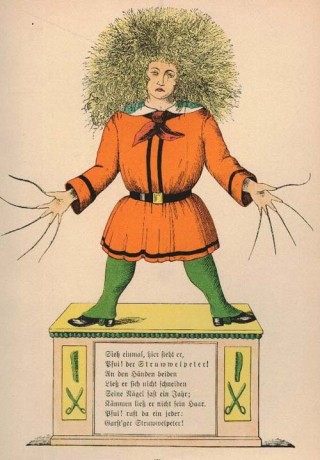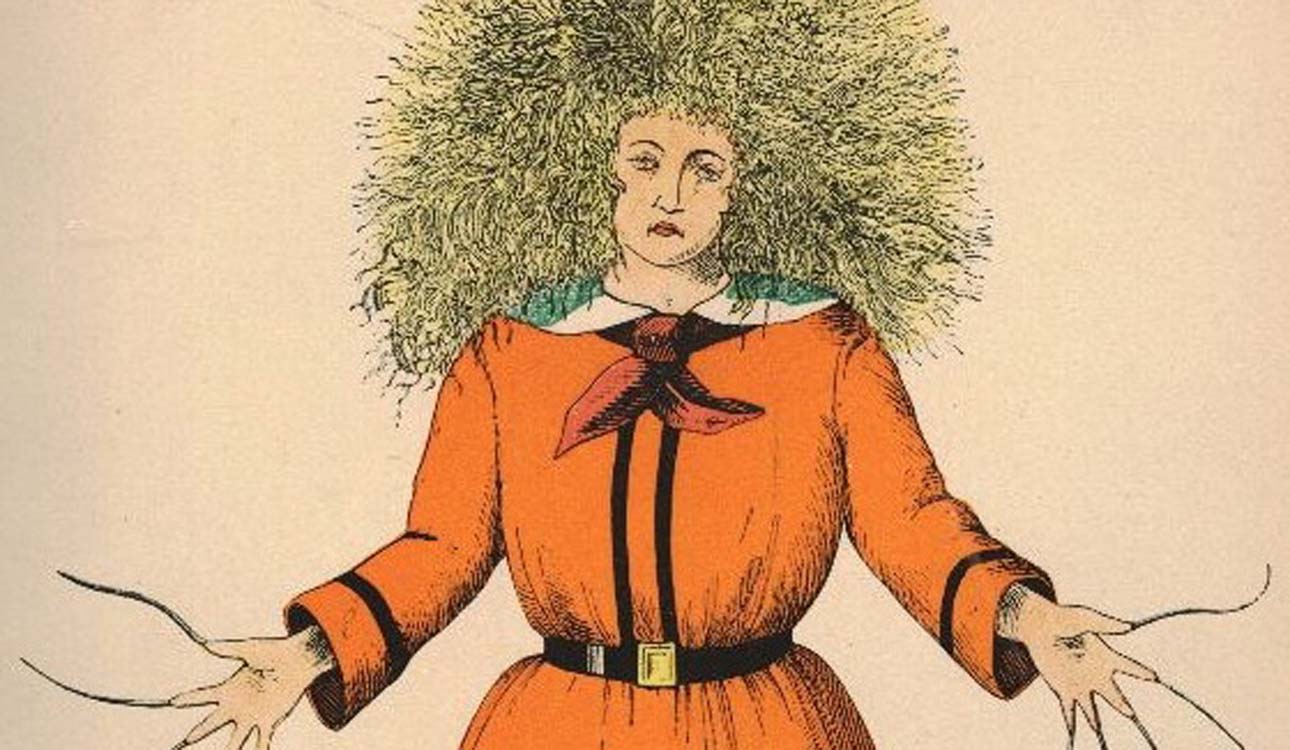
Heinrich Hoffmann (1809–1894)
By Joshua Madden
A&E Editor
I’ll admit it right up front — I originally found this picture online while looking for an absurd image I could use to mock my friends in Fantasy Football. It led me, however, to the Wikipedia article on “Der Struwwelpeter,” a German children’s book which features 10 stories intended to teach morals to the children who read the book.
I’m still not entirely sure what this picture is about, but it’s definitely scary enough to make me follow just about any moral guideline it wants to impose on me.
The thing is, after a certain age, people seem to decide that children’s literature has nothing to teach them any more. Once you accept that, it’s easy enough to accept that literature as a whole has nothing to teach you. Eventually, people just stop reading.
That’s a shame, because not a single one of those claims is true. Reading children’s literature can still be an insightful experience for anyone willing to open their mind long enough to read it.
There’s a reason that Dr. Seuss was also a very capable political cartoonist — he had an ability to illustrate the human condition, something that all people, regardless of their ages, should be able to appreciate.
I’ve recently attempted to write out a list of every book I’ve ever read — at least that I can remember reading — and I’ve found that I remember being just as profoundly affected by books like the “Harry Potter” series than anything I’ve read as a so-called adult, with the possible exception of “Atlas Shrugged” or “The Fountainhead.”
I think a great deal of us begin to look at books as something for children and not for adults. Many of my friends — and many people I know who are much older than me — have simply stopped reading books, which is not right.
I struggle to think about how much better Earth would be if everyone could dedicate a little bit more of their day to reading. Dedicating time to engaging with ideas and trying to better ourselves is something that we expect children to do, but we simply accept that adults will get too busy to do this and it will no longer be a priority. Why is that?
We accept that children need to learn morality while looking at “Green Eggs and Ham” and we forget that Dr. Seuss had things to say about war too.
So many times recently I have seen people dismiss something as being childish when, in reality, it is more poignant than most things we would consider “grown-up.” Try watching “The Lion King” again if you didn’t catch it when it was re-released in theaters. It is still a more beautiful film than many of the Best Picture nominees we see stumbling into the Academy Awards each year.
So as we work our way into homecoming and adulthood, let’s remember that we’re never too old to learn something from the books of our childhood or books in general. Most of us were lucky enough to miss out on “Der Struwwelpter,” but that doesn’t mean we should just forget about Dr. Seuss.
Do you think people need to read more often? What do you think they should be reading? Send comments to lariat@baylor.edu.




